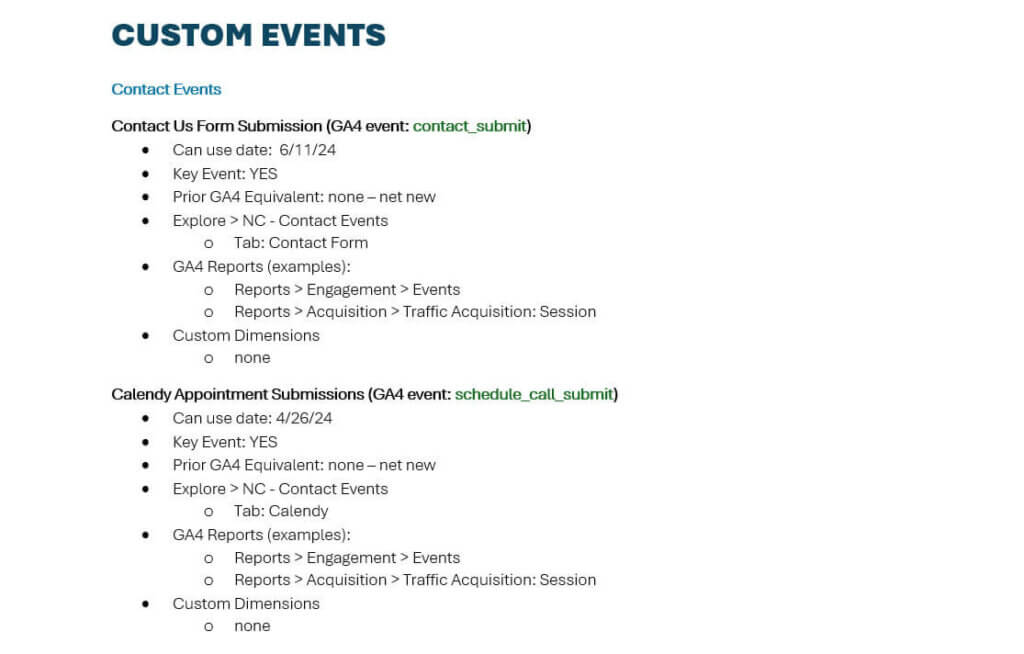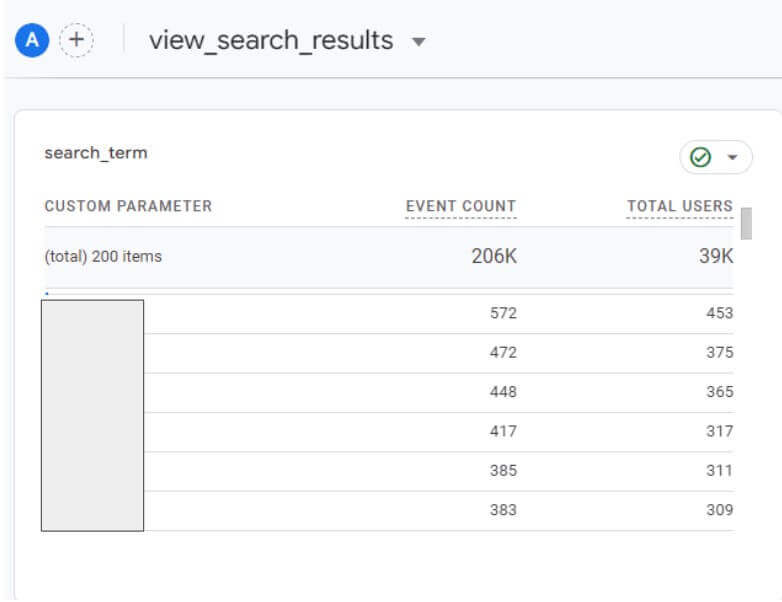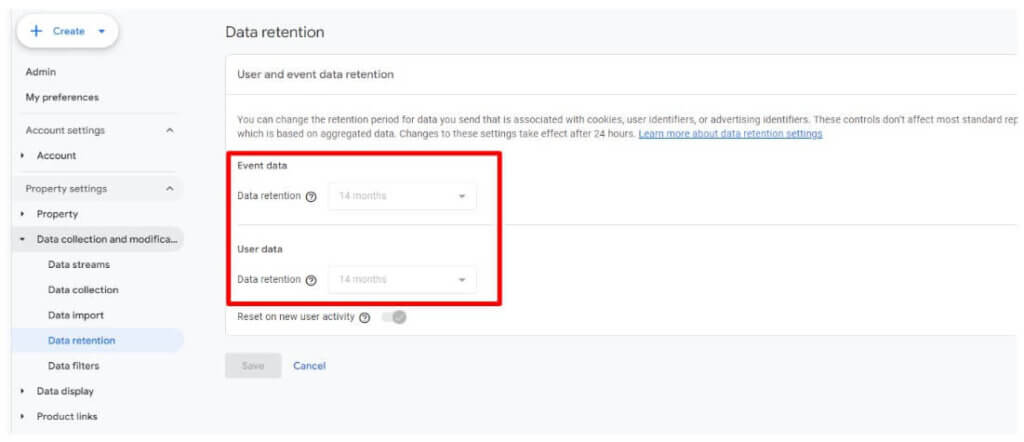Let’s start with the shameless plug to get it out of the way. Our team excels in conducting thorough analytics audits, providing you with the essential data needed for strategic decision-making. We’d love to help you unlock actionable insights to propel your business forward. To help you determine if an audit is right for you, we break down the top 10 warning signs that your analytics data might not be accurate.
#1: NO documentation on your setup
Proper documentation is super critical for any site more complex than 8 pages and a contact form. In case you haven’t heard, a Google Analytics 4 (GA4) setup is far more complex than GA Universal. Add in what’s required in Google Tag Manager (GTM – more on that in point 6) to get full use out of GA4 and your setup isn’t something you should keep in your head. Your documentation should include:
- Overall notes needed to provide the necessary context
- Internal traffic filter(s)
- “How to use” various reports, filters, etc.
- GA4 Explorations
- GA4 Config Tag
- Enhanced Measurement Events (site search, embedded videos, outbound links, file downloads, etc.)
- Custom Events (quizzes, product configurators, calculators, inventory lookup, quote requests, appointment requests, etc.)
You may have the perfect GA4 setup, but if it’s not documented properly, then the long-term stability & reliability of your analytics is at risk (especially in the event of a personnel change).

#2: Lack of events being tracked
If your tracked events are session starts, page views, and first visit, you fall into this category. Why does this mean you should consider an audit?
If you’re solely tracking basic events, you’re not gathering the crucial data needed for strategic decision-making. Conducting an audit allows you to identify and measure key performance indicators, essential for guiding your business’s future direction

#3: Not using enhanced measurement events
If you’re not using enhanced measurement events (or don’t know what they are), you’re missing out on opportunities for measuring your data.
Simply put, if you think it might be useful to know:
- What your potential customers use the search field on your site for
- If your videos are helpful to potential customers
- How many people click on those off-site links
- Who downloads files from various traffic acquisition sources
Consider opting in for an audit that maps out getting the event data you need.

#4: Unsure of Data Retention Settings
If you don’t know what your data retention is set to (or you don’t understand what that means) then this section is for you!
GA4 gives you a function called “Explorations”. Basically, you have FAR more flexibility to create custom reports that are meaningful to your business (which is cool!), BUT there’s a catch. GA4 will only keep the data from those “Explorations” for two (2) months by default. You can (and should) switch it to 14 months, which is an option in settings.
In fact, you don’t need an audit to do that. You can do that right now! However, an audit would still be a good idea to help you uncover other issues and ensure you’re taking advantage of all opportunities like this one.

#5: Not using custom events
Examples of custom events include engagement from email, form fills, clicks on chat, etc. If you’re not using custom events, but are interested in tracking specific actions, then you need an audit.
Most modern websites have some type of call-to-action conversion that needs custom event tracking (within GA4) to properly measure effectiveness. As noted earlier, those can include:
- Quizzes
- Product configurators
- Calculators
- Inventory lookup
- Quote requests
- Appointment requests
- Email clicks
- and more!

#6: No GTM or no idea what GTM is
This is a big one. GTM is not required for a GA4 implementation, BUT going without it is like getting a base model vehicle without the features you really want.
If you don’t have GTM, or this is the first you’ve heard of it, then you need an audit. If you have GTM, but don’t have active tags or tags that are working/transferred over to GA4 for active triggers, then you also need an audit.
#7: Automated GA4 Account Setup (aka Google automatically set GA4 up for you)
Google was “kind” enough to convert many GA Universal analytics accounts to GA4 and take care of the setup from their end.
Imagine having the outside of your house painted by a high-pressure sprayer from a block away. That’s basically what a GA4 setup automatically done by Google will get you.
If Google set up your GA4, then you definitely need an audit.
#8: General lack of confidence in your GA4 data
This should be obvious. Regardless of the reason for your lack of confidence, that alone is reason enough to have an analytics audit done.
Want to make smarter marketing decisions with data you can trust? You need an audit.
#9: Google Ads isn’t linked to your GA4
If you’re using Google ads, then you want it to be linked to GA4 for an optimal campaign. By linking your Google Ads account with your Analytics property, you can track the entire customer journey—from initial ad interactions to goal completions like purchases and content engagement on your site.
#10: Videos are on your website but you don’t know if they’re being watched
Videos generally exist on your website for the purpose of assisting your customers through the buying cycle or supporting existing customers. Either way, it’s in your best interest to measure their engagement and effectiveness.
Helpful Tool to Analyze Your Current GA4
If you find any of these conditions applicable to your business, you should really audit your analytics to avoid making decisions based on bad data or no data.
If you’re looking for a quick view of where your GA4 problem areas are, check out our Looker Studio report designed to do just that! Simply select your GA4 property in the drop-down at the top of the page and this handy report will auto-populate to give you a pass/fail score across the important areas of data quality, events, and ecommerce events.
If you’re interested in having a professional audit of your GA4, fill out the form here and we’ll set something up!
